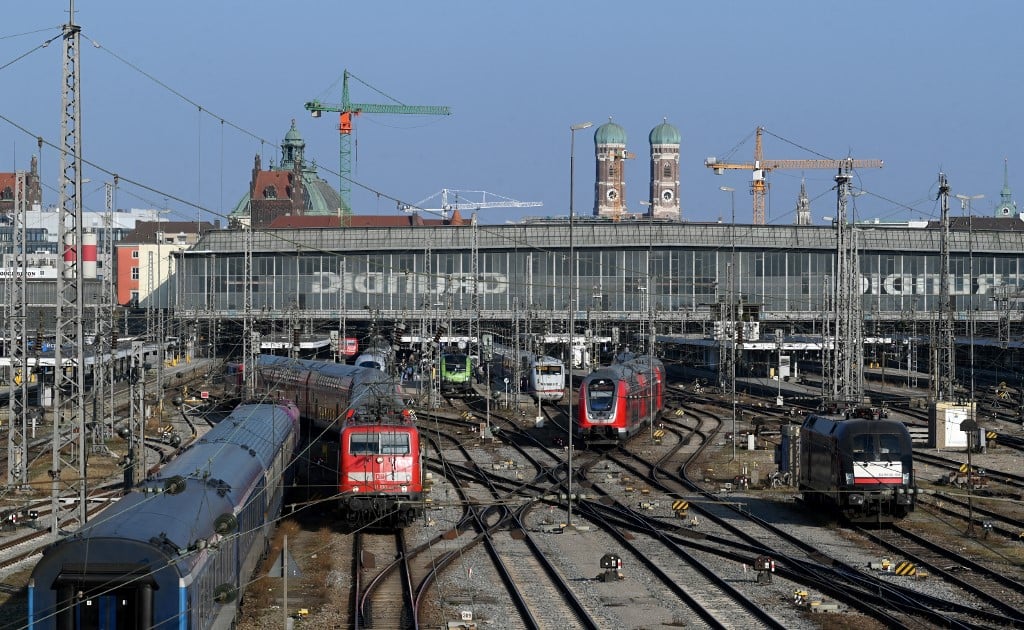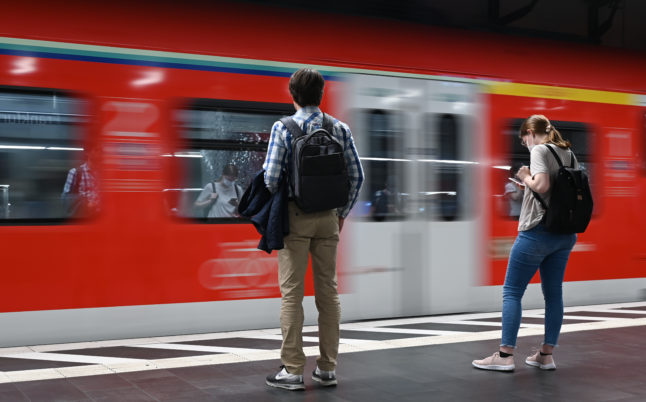In politics, expectations management is crucial. If governments get it wrong, they risk becoming unpopular or – as happened recently in the UK – imploding wholesale: Liz Truss et al. overpromised to win control of the governing Tory party and then did an appalling job of managing market expectations (i.e. they neglected to manage them at all), tanking the UK economy and their own careers at record speed.
Next to this spectacle, of course, Germany’s tripartite government coalition’s performance looks pretty passable. Nevertheless, as the whole 9-Euro-49-Euro-ticket saga demonstrates, Scholz & Co. could well use a lesson in how not to unnecessarily raise expectations.
READ ALSO: What you need to know about Germany’s €49 ticket
When, this spring, German transport minister Volker Wissing and the Green’s parliamentary leader Ricarda Lang presented a 90-day trial for a travel card covering all local public transport services across Germany at a bargain-basement €9 monthly flat-rate, they set pulses racing – something that, as second-rank figures lacking the heft of their respective party heavyweights Lindner and Habeck, neither of them get to do all that often.
Suddenly, the whole country was electrified by the possibility of riding pretty much everything except ICEs for little more than the cost of a Currywurst and those of us who criticised the idea as an ill-thought-out giveaway which would do little more than clog up an already over-stretched network looked like Scrooges.
Now, of course, after the end of the 90-day bonanza and months of wrangling, it is Wissing, Lang and the 16 state transport ministers who were, presenting its successor, left sounding like they are barking “Bah humbug!” in the run-up to Christmas. “€49 Euros a month?!” For those arguing for an extension of the €9 ticket, that is a difference of €40; even advocates of Austria’s more realistic 365-Euro-ticket are around €19 out. And so all the relief that there will now be a permanent cheap ticket is tinged with disappointment that it won’t be that cheap.
‘Public equivalent of joyriding’
Yes, the political expectations management here was awful, because, considered on its own merits, the €49 ticket is sound policy which will have a long-lasting effect on real incomes and travel patterns without the deleterious effects of its short-lived gimmicky predecessor.
So what was wrong with the €9 ticket and how is the €49 ticket better? The biggest problem with this summer’s eye-catching initiative was that, while it did achieve one stated aim of putting money in the pockets of existing season-ticket holders, the price was so crazily low as to encourage the public-transport equivalent of joyriding.
In milder instances, people who could perfectly well have afforded to use long-distance services switched to far slower and far more complicated itineraries because they were unbeatably cheap, contributing to overcrowding on regional lines; at its worst (i.e. on warm weekends), the ticket encouraged people to head to already busy tourist hotspots when they otherwise wouldn’t have travelled at all.
READ ALSO: What happens to Germany’s €9 ticket at the end of August?
This ran completely counter to another of the policy’s aims of reducing emissions (the most carbon-neutral journey is, after all, the one that never happens). It was also counterproductive insofar as it added disruption to a network already struggling with staffing shortages and a chronic lack of capacity: rather than attracting new riders, in many instances, the overcrowded and heavily-delayed services of this summer will have confirmed car-drivers’ suspicions that public transport is a sweaty hell-hole best avoided.

All of this explains why the €9 ticket was a failure: studies tracking its effect showed that, more than anything, it created more traffic without making a serious dent in the number of car journeys undertaken. And while doing that, it drained the coffers of public transport operators who are now reliant on Berlin making up for missing ticket receipts, in turn adding a couple of billion Euros to an already maxed-out governmental credit card.
Avoiding excesses
Now, by cranking up the price from “Oh, sure, why the hell not?” up to “Hm, sounds okay, I guess…”, the €49 ticket will avoid these excesses while still offering considerable savings both to season-ticket holders and anyone looking to make more use of public transport options in their free time or on holiday. This will be a helpful tool in the box when it comes to trying to get a grip on rampant inflation and a boon to hard-pressed commuters and low-income households. What it won’t do is actively provoke people into travelling just for the sake of it – and won’t bankrupt either the federal or the state transport departments.
Yet what is by far the most important thing about the €49 ticket is its radically simplifying effect. In many countries, public transport (especially rail) is plagued by complicated fare structures, and Germany is perhaps Europe’s worst offender here: within each region, there are dozens of local transport authorities who set their own rates, usually based on complicated geographical zoning and often with a peak/off-peak element; some offer 24-hours day-tickets, others passes only valid until midnight or until 6am on the following day; in addition, service operators tend to offer their own flat-rate tickets, weekend travelcards, and various other deals, often for groups of different sizes or with specific characteristics (youths/seniors, students, jobseekers)…
So for everyone looking to buy a fare with €49.00 to spare but not 40 minutes, the new go-to monthly ticket offers a quick way out. And if €49 sounds like a lot, it’s worth bearing in mind that many longer return journeys with regional trains can end up costing that if an overnight stay is involved.
Anyone planning to take just one trip from, say, Hamburg to Flensburg, staying a few days there and taking the bus to get around, is quids in – and will be delighted that they can use HVV services back in Hamburg and that, if they end up in Berlin or Munich later that month, they can also ride the busses, trams, and underground trains there.
By taking a machete to the thicket of fares, this new permanent ticket beats a path to a nationwide public transport experience smoother than at any point in the past. As of next year, most people looking to ride on even just a semi-regular basis will no longer have to think twice about ticketing and will be able to use busses and trains in the same way drivers use their cars.
This is genuinely transformative, and if we’d never had the €9 ticket, the €49 ticket would be a headline-grabbing shift in transport policy. As it is, though, this important moment seems like an anti-climax.



 Please whitelist us to continue reading.
Please whitelist us to continue reading.
Member comments